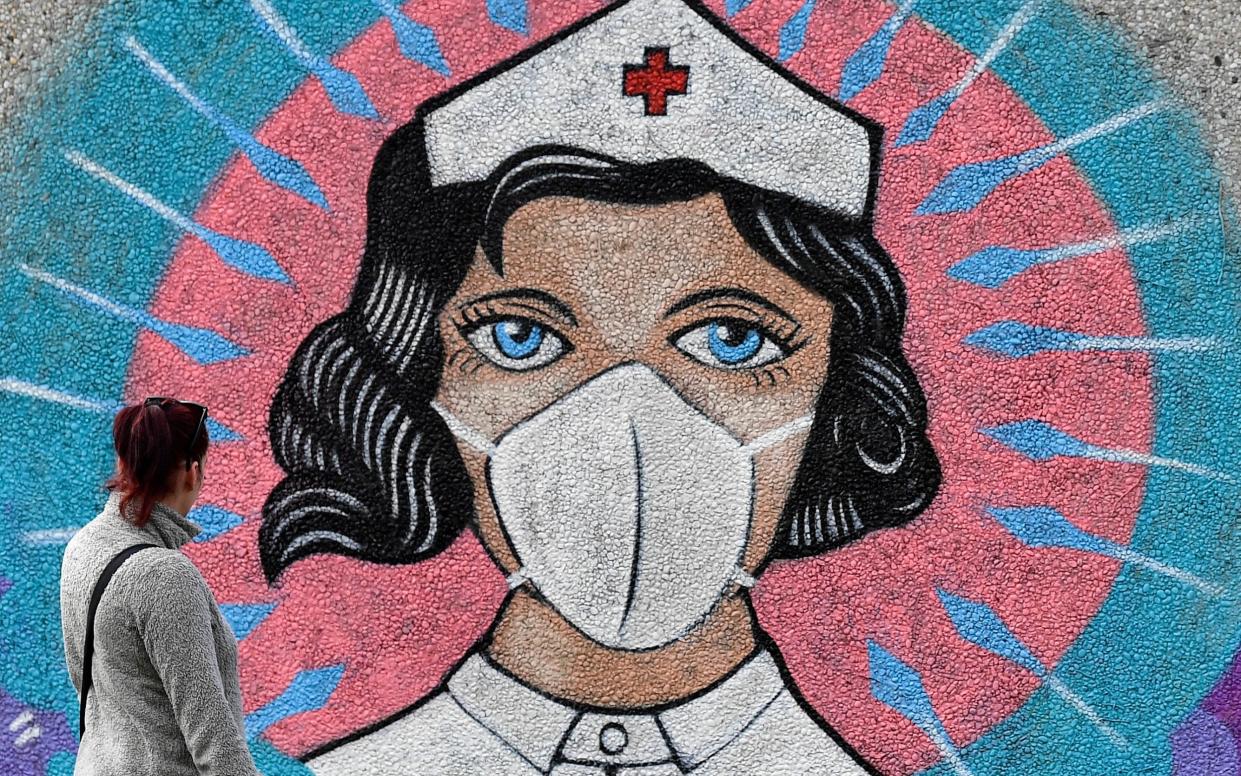The F-plan: how a feminist Covid recovery could help women get back on their feet

By the end of this year, despite everything, as many men will be back in work as ever.
But 13 million women will not. Their jobs, lost during the pandemic, are gone for good.
It is statistics like this which have led experts to brand Covid-19 the “gendered pandemic”, setting the rights of women and girls back by decades.
But making sure these setbacks are not permanent is more complex.
Now, a new report from UN Women has called for a “feminist recovery” to put this problem at the heart of how the world gets back on its feet.
It describes the pandemic as the “great revealer”: it exposed the “precarity” of women’s jobs and livelihoods, the reliance on women as poorly paid and unpaid carers and how the world is ill prepared for “systemic crises”, such as the looming climate crisis.
The report highlights how, globally, in 2019 and 2020 women lost 54 million jobs, and even before the pandemic, they took on three times as much unpaid care work as men.
Author of the report Laura Turquet said the pandemic was a chance to re-set.
“We have an opportunity as we recover from the pandemic to think about how we can not only regain lost ground but also address some of the underlying issues that have been holding women back,” she told The Telegraph.
She said that a feminist plan should address five key issues.
Investment in care services
The pandemic has highlighted how the majority of paid and unpaid care is undertaken by women. Care is critical but neglected and women pay the price, the report says.
Globally, 70 per cent of care workers are women and a survey of 11 countries showed that women made up 71 per cent of confirmed Covid cases among all health workers.
Women have also taken on more unpaid care, with research presented in the report showing that in 16 countries women took on 29 per cent more unpaid childcare than men during the pandemic.
The report described women’s unpaid work in families and communities as a “shock absorber”.
Creating jobs and investing in child care services would be a “triple dividend”, said Ms Turquet.
“Child care is really good for children, in terms of their education and mental wellbeing. It’s really good for parents as it means they’re able to go out and have paid jobs. And although it is a big outlay you also get quite a lot back in terms of increased tax receipts,” she said.
Expanding and strengthening social protection
As countries imposed lockdowns many men and women were unable to work - but the 740 million women working in the informal sector were particularly hard hit.
At the same time, these workers were least likely to have access to social protection such as welfare payments, meaning they were more likely to fall into poverty and go hungry.
To counter this, some governments introduced schemes where cash was transferred directly to women - however, most of these have now ended.
“Many women were already on a knife edge and were completely tipped over by the pandemic so governments have had to expand cash transfers and social protection. But now we have an opportunity to build on that and to develop more universal, long-lasting systems,” said Ms Turquet.
Ensuring women are properly represented in crisis recovery
Despite the critical role that women have played in supporting others during the pandemic, just 24 per cent of seats on Covid task forces around the world have been given to women, the report shows.
This is reflective of women’s representation more generally, with women making up just under a quarter of parliamentary seats globally.
“We need to see much fairer representation of women so that they can influence crisis response - not just for Covid but for the next one,” said Ms Turquet.
Many women’s rights activists are pinning their hopes on Argentina's experiment, where president Alberto Fernández has appointed three women to high profile roles to drive a feminist agenda right through policy making.
“These women have brought the demands of the women's movement into the heart of governance,” said Ms Turquet. “Of course you want women in parliament but actually you need women and feminists at every level of government and bureaucracy to bring about that change,” she said.
Increase support for women’s organisations
From delivering food parcels to making PPE to running refuges for victims of domestic violence, women’s groups have provided a vital safety net throughout the pandemic, says Ms Turquet.
But these organisations are woefully underfunded, receiving just one per cent of aid funding, she added.
“Women’s organisations play a massive role so strengthening them would be hugely important and help women everywhere,” said Ms Turquet.
Enabling women to harness the potential of the “green revolution”
The transition to a more environmental economy could create up to 24 million new green jobs, in areas such as renewable energy, the report.
Women should have the opportunity to access their fair share of these opportunities
including by getting the necessary training and skills, the report says.
This is especially important as women in developing countries are more likely to work on the land, produce food and collect water and are therefore more at risk from the effects of global warming - despite contributing very little to the climate crisis.
“It's estimated that 24 million new jobs could be created in the green transition. And so we need to ensure that women can access those jobs. This requires programmes to help them re-skill and retrain,” said Ms Turquet.
Protect yourself and your family by learning more about Global Health Security

 Yahoo News
Yahoo News 
